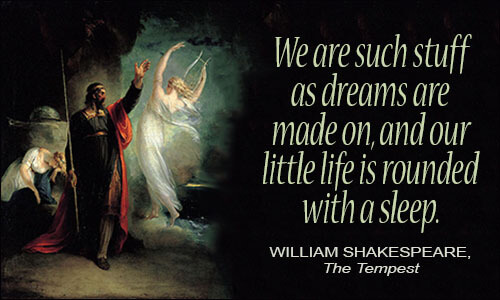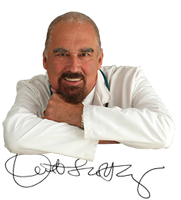If there is light within the darkness of dying, it’s in the experience, not in the observing. ~Dr. Christopher Kerr, Hospice Buffalo, NY.
I’m one of the few internationally-known medical writers who occasionally writes about death and dying. Elisabeth Kubler-Ross is exceptional. Others seem to avoid it, as a sort of denial (“Just do as I say and things will never come to that” sort of mentality).
As I have pointed out often, doctors MUST be there to serve their patients at life’s end, otherwise what use are you as a healer and comforter? Being absent at life’s end is a betrayal.
It’s also nuts because we all die sooner or later. There’s no use pretending. Even if we attain “immortality”, we’ll eventually choose to die, whenever. But that fateful moment can’t be stalled forever. The joke is, of course, that as non-material spiritual beings, we can’t actually die! We can only transition from one plane to the next.
It’s just the body that tuckers out and vanishes. The YOU never does (it can’t!) So dying is only a loss of context, not a loss of Being…

Yet doctors are never taught what to say, or how to behave, in a life-ending situation. Consequently, there is little scientifically documented data as to what happens. It’s the territory of poets and playwrights, novelists and musicians. That’s a pity.
Because we can learn a lot about life at life’s ending.
As a decent physician, I’ve never shirked the moment. As a result of that, I’ve had some awesome and rewarding experiences. To me, it’s routine, that deceased relatives and friends come to call for the dying person. I’ve watched patients reach out and take someone’s hand at the foot of the bed… and been dead within minutes or hours.
Moreover, the “deathbed scene” is always a time of powerful love and forgiveness. As the end draws near, the terminally ill patient sinks into a wonderful calm. They show great love for all and desire to heal or bring forgiveness and closure to whatever situations were hurtful and unhealed in their life.
Sometimes the other person is there. Often not, and the desired reunion is not fulfilled.
I have a strong determination to teach people NOT to wait till life’s end! If you’d seen some of these moments of wonderful reconciliation you’d understand. Why wait? You miss out on years of love that could have been yours to enjoy, instead you left it till the last minute!
That’s sad.
The good news is that it’s never too late to heal wounds. The better news is that—if you do it now—it feels just as wonderful and the good times last far longer.
Not preaching, just offering a suggestion!
Doctors Get In The Way
I’m sorry to say that doctors are not only little use at this time but they often really mess it up for everyone involved. They try to defy death and then, when they fail, they react by denying it.
The kinds of encounters I have been describing are often dismissed as “ravings” or “confusion”. Doctors might even prescribe meds to “cure” it, or at least to submerge the patient’s awareness. To them, death is just a physiological process, not a moment of spiritual truth that has to be processed consciously.
Being given sedatives or a “cocktail” mix (morphine) denies the patient this need.
And there is the issue of mortality. Sometimes, a person’s time has come and doctors should STOP what they are doing!
Remember the moment in the movie Groundhog Day, when obnoxious Bill Murray—who is trying to be a better person to impress his girl—tries to save the old man dying of cold and old age?
Murray can’t help and learns eventually, that if a person’s time has come, even magic can’t turn back the clock. The old man dies in every repeat iteration.
Instead of feeding the guy hot soup and bread, Murray may have done better to just talk to him and say, “Tell me about your greatest love.” That one, simple question is among the most healing tools I know (and we have plenty in Supernoetics®).
While I’m talking about movies, try to get to see The Ghost and Mrs Muir (starring Rex Harrison, George Sanders and Gene Tierney, 1947). I found it today on YouTube: https://www.youtube.com/watch?v=V34d4jEF-y4. The closing frames are of the ghost of Captain Gregg coming to take Mrs. Muir home with him to the afterlife! It’s a lovely movie indeed (oops, plot spoiler).
No Fear
We all fear death, of course. But that’s when it is remote; an inconvenient interruption in the things we want so earnestly to do. Distant death is a bummer.
But when it comes very close, things are different. You will not fear, once inevitability sets in. You’ll have far to much to process, without worrying about details like “Why me?” or “Why now?”
Now some interesting work has surfaced that actually goes to dying patients for the facts (that’s revolutionary!) At least one doctor has listened to dying patients and BELIEVED them. He’s Dr. Christopher Kerr of Hospice Buffalo and he presented his findings in a TEDx talk (2015).
He found, as I do, that people become aware of the “presence” of deceased relatives, ready, loving and waiting to help them cross over. It’s all rather jolly. Certainly not a time for mourning.
The poor souls we should feel for are those luckless people who didn’t have time to prepare and were catapulted into the next world with no warning or time to think: victims of bombings, shootings, landslides, etc. That’s not to say they won’t be welcomed or linked up with family who have gone before; I just don’t know.
What I do know is that the poor youths shelled, shot or busted in half on the battlefields of World War 1, for example, always cried out “Mum!” in their extremis, not their sweethearts. For many, I know, Mum is the start and end of it all!
Anyway, Dr. Kerr found by collecting data that it became possible to predict roughly when the person’s transition would come, just from the frequency of dream encounters with loved ones. I find it all very wonderful.
Go and see Dr. Kerr’s talk here:
See if you can pick up the quavering of grief in his voice (could be just nerves, I suppose)
Meantime, make the world better by doing this:
- Tell as many people as you have guts for that you don’t want to wait till the deathbed scene, “Let’s start the healing and forgiveness here and now!” Just be gently persistent, not overpoweringly supercilious.
- Talk to those you meet who are dying, and who know they are, about what their hopes and dreams are for the next life. Don’t be shy. They’ll love you for it.
- Ask your family (and friends) how they want to approach the end: do they want “lights out” with a chemical cosh, or not? Just remember people are fearful while death is far away and may not give a fearless answer.
- If you have a care for it, read Elisabeth Kubler-Ross’s book On Death and Dying. Become an advocate of open, honest discussion around the end-of-life scenario.
- Live long, live well, show love, forgive all and spread as much kindness in the world as you can, before getting tangled up in this dying stuff! Ha ha!
And before you email and ask, NO, I’m not thinking about this topic because my own passing is close (not unless the FDA, AMA or similar sends out a hit man to shut me up!)
Fond Regards,
Prof.

Prof. Keith Scott-Mumby
The Official Alternative Doctor
The post What Happens When We Die? appeared first on Dr. Keith Scott-Mumby.
